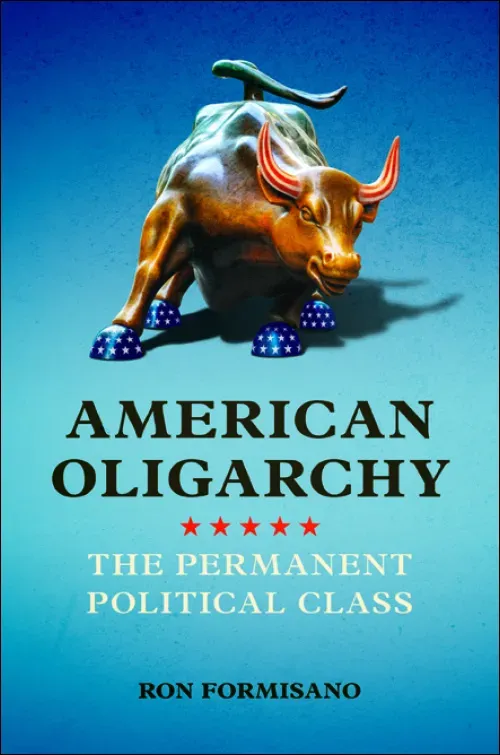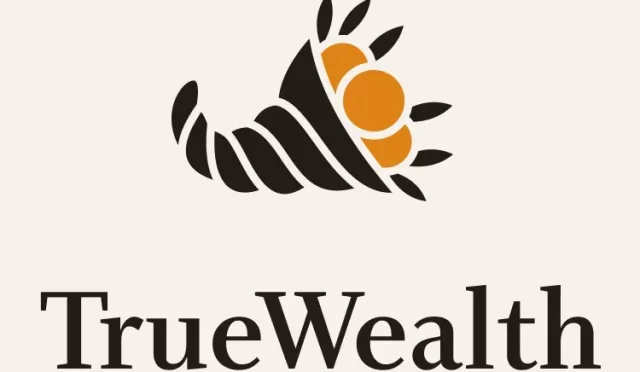American oligarchy is reshaping the landscape of wealth and power in the United States, as economic inequality reaches alarming levels. A staggering report from Oxfam America highlights how the ten richest billionaires have collectively amassed $698 billion in additional wealth just in the past year, raising the specter of the world’s first trillionaire. This vast wealth concentration feeds directly into the political arena, resulting in policies that favor the elite while placing significant burdens on working-class families. As the current administration pushes forward with initiatives that seem to deliberately disadvantage ordinary Americans, the true impact of these actions on democracy becomes increasingly evident. Recognizing the dynamics of American oligarchy is vital for understanding the broader implications of wealth disparity and the urgent need for reform.
The term “economic elite” captures the essence of the shifting power dynamics witnessed in America today, where a select few hold disproportionate influence over wealth and policy. Such wealth concentration not only exacerbates social divides but also creates systemic challenges for the working-class demographic struggling to achieve economic mobility. The growing disparity has been outlined vividly in Oxfam’s research, revealing that the interests of the affluent often override the needs of communities. With the looming threat of oppressive financial structures, there’s an increasing call to action for reforms that advocate for equitable economic systems. Addressing these emerging concerns is essential to ensure a balanced future where everyone has the opportunity to thrive.
The Rise of the American Oligarchy
The emergence of an American oligarchy has been starkly illuminated by the staggering increases in wealth among the richest individuals in the country. In the last year alone, the ten wealthiest billionaires in the United States amassed an astonishing total of $698 billion, underscoring a disturbing trend of wealth concentration. With discussions surrounding the potential for a trillionaire on the horizon, this accumulation of riches raises significant concerns about economic inequality. As the wealth of the elite continues to balloon, the gap dividing them from working-class families grows exponentially, leading to a destabilization of the foundational principles of democracy.
This financial disparity is not merely a byproduct of economic forces but is heavily influenced by political decision-making. Oxfam America’s findings in the “UNEQUAL” report highlight how policy choices—particularly those concerning tax legislation and labor rights—favor the affluent at the expense of the broader society. The continuous enrichment of a select few at the top has detrimental effects, fueling discontent among working-class families who struggle to make ends meet in an environment increasingly skewed towards elite interests.
Economic Inequality and Its Impact on Society
Economic inequality manifests in various detrimental ways, affecting the very fabric of society. The widespread concentration of wealth among a small elite has led to diminished economic mobility for working-class families. Data indicates that as the wealthy accumulate more resources, essential services such as healthcare and education become increasingly inaccessible to those in lower income brackets. This growing divide not only strains families financially but also contributes to social unrest and a diminished sense of community amongst citizens.
Furthermore, organizations like Oxfam America underscore the urgent need to address these inequities through active policymaking. They argue that without a concerted effort to redistribute wealth through equitable taxation and social welfare programs, economic disparities will continue to widen, thereby jeopardizing social cohesion and stability. If left unaddressed, the consequences of economic inequality could lead to significant societal fractures, with political ramifications that may engulf the nation.
The Role of Government in Addressing Wealth Concentration
Government intervention is critical in mitigating the effects of wealth concentration. Policymakers hold a powerful position to influence economic outcomes through legislative action. Recent trends show that administrations have often prioritized the interests of the wealthy, implementing tax cuts that disproportionately benefit the ultra-rich while leaving working-class families struggling to cope with stagnant wages. Such maneuvers not only exacerbate economic inequality but also dilute the democratic process by allowing elite interests to overshadow the needs of the majority.
Programs that empower working-class families are essential to reversing this tide. Investing in affordable healthcare, education, and social services can enhance the quality of life for millions and provide a viable path toward economic equality. Additionally, reports such as Oxfam’s “UNEQUAL” present a comprehensive agenda, urging legislators to enact policies that uplift disadvantaged populations. This approach would not only address the symptoms of inequality but also reinforce the principles of democracy that hinge on equal opportunity for all.
Billionaires and Political Influence
The increasing wealth of billionaires has not only allowed them to amass capital but also to gain significant political influence. This dynamic creates a feedback loop where wealth begets power, which in turn allows for the further accumulation of wealth. As highlighted in Oxfam’s recent research, decisions that shape public policy are often heavily influenced by the elite, resulting in legislation that favors their interests over those of average citizens. Such disproportionate power dynamics can stifle meaningful reform, perpetuating a cycle that reinforces economic inequality.
Moreover, this concentration of political influence creates barriers to effective governance. With billionaires contributing significantly to political campaigns, their interests may overshadow those of everyday Americans. This can lead to a prioritization of policies that protect wealth over those that promote social equity. Addressing the political ramifications of this concentration is crucial in ensuring that the voices of working-class families are not drowned out by the interests of a powerful few.
Workplace Inequality and Labor Rights
The landscape of workplace inequality is deeply intertwined with the current economic climate. As wealth becomes increasingly concentrated, labor rights often take a back seat, with many workers facing stagnant wages and precarious employment. The erosion of workers’ rights can be traced back to policies pushed by powerful elites, who benefit from lax regulations and reduced labor protections. This state of affairs has left many working-class families grappling with unfair wages, inadequate benefits, and little job security.
To combat this trend, advocacy for labor rights is essential. Organizations like Oxfam America stress the importance of upholding and expanding labor rights to ensure workers receive fair compensation and protection from exploitation. When workers are empowered, they can negotiate better wages and working conditions, ultimately contributing to a reduction in economic inequality. This collective action is vital for creating a workforce that reflects a fair distribution of power and resources, shouldering the responsibility of fostering a more equitable society.
The Future of Economic Justice
The fight for economic justice is more critical than ever as the gap between the wealthy and the working-class continues to widen. Solutions lie in reimagining how wealth is distributed and ensuring that policies are enacted to support the most vulnerable populations. By implementing progressive taxation and enhancing access to quality education and healthcare, society can begin to dismantle systemic inequalities and reduce wealth concentration.
Moreover, fostering a culture of philanthropy and corporate responsibility can also play a role in bridging the economic divide. Organizations like Oxfam America encourage individuals and corporations to contribute to social initiatives aimed at uplifting the disadvantaged. The future of economic justice hinges on active participation from all sectors of society, creating a collective effort to champion equity and dismantle the structures that perpetuate inequality.
Mobilizing Communities for Change
Community mobilization is a powerful tool in addressing the issues of economic inequality and concentrated wealth. Grassroots movements have shown the capacity to inspire change by uniting individuals around common goals, advocating for policy reforms that benefit working-class families. These movements are crucial in amplifying the voices of those who have been marginalized in discussions about wealth and power, fostering a sense of agency among ordinary citizens.
Through coordinated efforts, communities can push back against the interests of the oligarchs and demand accountability from their leaders. Engagement in local politics, participation in social movements, and collaboration with organizations like Oxfam America can empower citizens to advocate for their rights and challenge existing power dynamics. Ultimately, community mobilization can dismantle the structures of inequality, ensuring that economic justice becomes a reality for all.
Wealth Redistribution: A Path to Equity
Wealth redistribution has emerged as a critical discussion point in addressing economic inequality. The idea is straightforward: to promote equity, society must actively work to redistribute wealth from the richest individuals to those in need. Mechanisms such as progressive taxation, social investments, and wealth-sharing initiatives are essential in creating a more equitable economic landscape. Policies that prioritize the well-being of working-class families can significantly reduce the disparities that currently define the American socioeconomic landscape.
Organizations like Oxfam America are at the forefront of advocating for systemic changes that promote wealth redistribution. By highlighting the dire consequences of wealth concentration and calling for equitable policies, they lay the groundwork for a more just society. The path to equity involves not just addressing immediate needs but also creating sustainable systems that ensure prosperity is shared among all members of society.
The Role of Education in Overcoming Inequality
Education plays a pivotal role in overcoming economic inequality and providing opportunities for upward mobility. Access to quality education can empower individuals from working-class families, equipping them with the skills and knowledge needed to compete in a rapidly changing job market. However, the growing wealth gap often correlates with disparities in educational resources, making it difficult for those from lower-income backgrounds to access the same opportunities as their affluent counterparts.
To counter these challenges, initiatives aimed at improving public education funding and accessibility are paramount. Investments in education can yield significant returns, not just for individuals but for society as a whole. By prioritizing educational equity, Oxfam America and other advocates recognize that the future prosperity of the nation hinges on ensuring that every child, regardless of their socioeconomic background, has the opportunity to succeed.
Frequently Asked Questions
What is American oligarchy and how does it relate to economic inequality?
American oligarchy refers to the concentration of wealth and power in the hands of a small number of individuals or families, often leading to significant economic inequality. This system allows the wealthy elite to influence political decisions and policies that enrich themselves while neglecting the needs of working-class families. The rise of billionaire oligarchs has created alarming levels of wealth concentration, diminishing democratic values and opportunities for the average citizen.
How does wealth concentration contribute to the current state of American oligarchy?
Wealth concentration exacerbates American oligarchy by limiting the financial and political power of the majority. As the richest individuals accumulate more wealth, they gain greater influence over policies that favor their interests. This trend has created a feedback loop where economic inequality grows, making it more difficult for working-class families to achieve upward mobility, ultimately entrenching the oligarchic structures that favor the elite.
What role does Oxfam America play in addressing issues related to American oligarchy?
Oxfam America plays a critical role in addressing economic inequality and the consequences of American oligarchy by conducting research, such as the UNEQUAL report, which highlights the trends and statistics around wealth concentration. The organization advocates for policies that support the working-class, urging lawmakers to prioritize the needs of ordinary citizens over those of the wealthy elite. Through their initiatives, Oxfam aims to promote economic justice and challenge the oligarchic structures that dominate American society.
What are the implications of having a trillionaire in America for economic inequality?
The emergence of a trillionaire in America would symbolize the extreme wealth concentration that characterizes American oligarchy. It raises concerns about economic inequality, as such a vast fortune can lead to disproportionate political influence, potentially undermining democratic processes. This scenario highlights the urgent need for policies that address wealth redistribution and support working-class families to counteract the negative effects of rising oligarchic power.
How can we reverse the harmful effects of American oligarchy on working-class families?
To reverse the harmful effects of American oligarchy on working-class families, a multifaceted approach is necessary. This includes implementing progressive taxation, ensuring fair labor practices, increasing social protections, and creating policies that prioritize the needs of average citizens. Advocacy from organizations like Oxfam America is vital in mobilizing communities and pushing for comprehensive reforms that combat the escalating economic inequality and restore power to the working class.
| Key Point | Description |
|---|---|
| Concentration of Wealth | The 10 richest U.S. billionaires increased their wealth by $698 billion, indicating a significant wealth concentration. |
| Political Influence | High wealth levels directly impact political processes and decision-making, particularly favoring the wealthy. |
| Impact on Democracy | Growing economic inequality is eroding democratic processes and causing widespread hardship. |
| Policy Recommendations | Oxfam urges policymakers to support worker rights, labor movements, and community demands to address inequality. |
| Future Action | The report outlines necessary actions to combat inequality and promote a more equitable society. |
Summary
The rise of an American oligarchy has become increasingly evident as concentrated wealth and power dominate the political landscape. This shift towards a significant disparity in riches threatens to undermine democratic values and the welfare of ordinary citizens. With policymakers prioritizing the needs of a wealthy minority, it is essential to advocate for reforms that empower the working class and restore fairness in economic opportunities. Oxfam’s UNEQUAL report highlights critical issues and proposes actionable strategies to counteract these growing inequalities in America.








